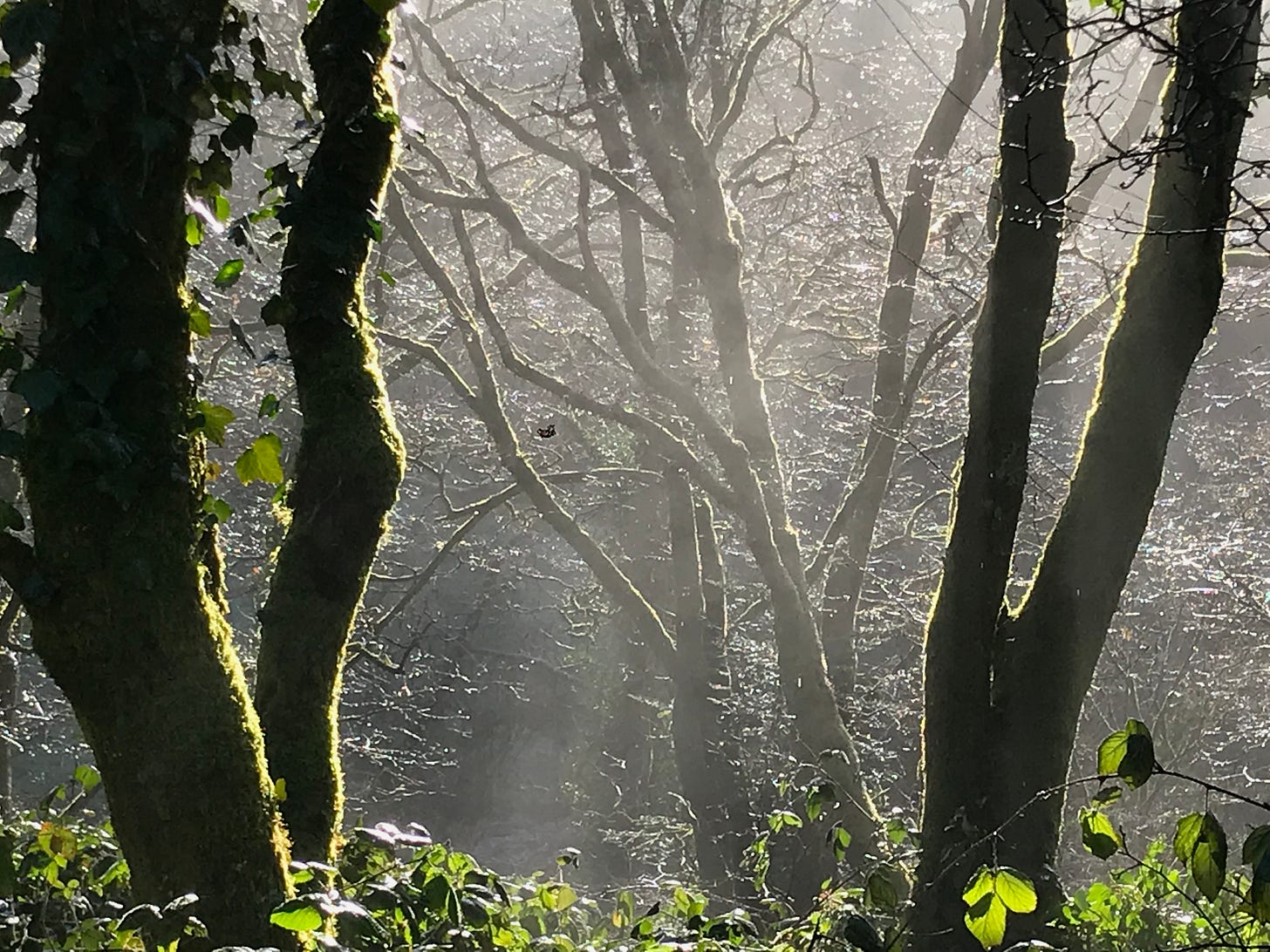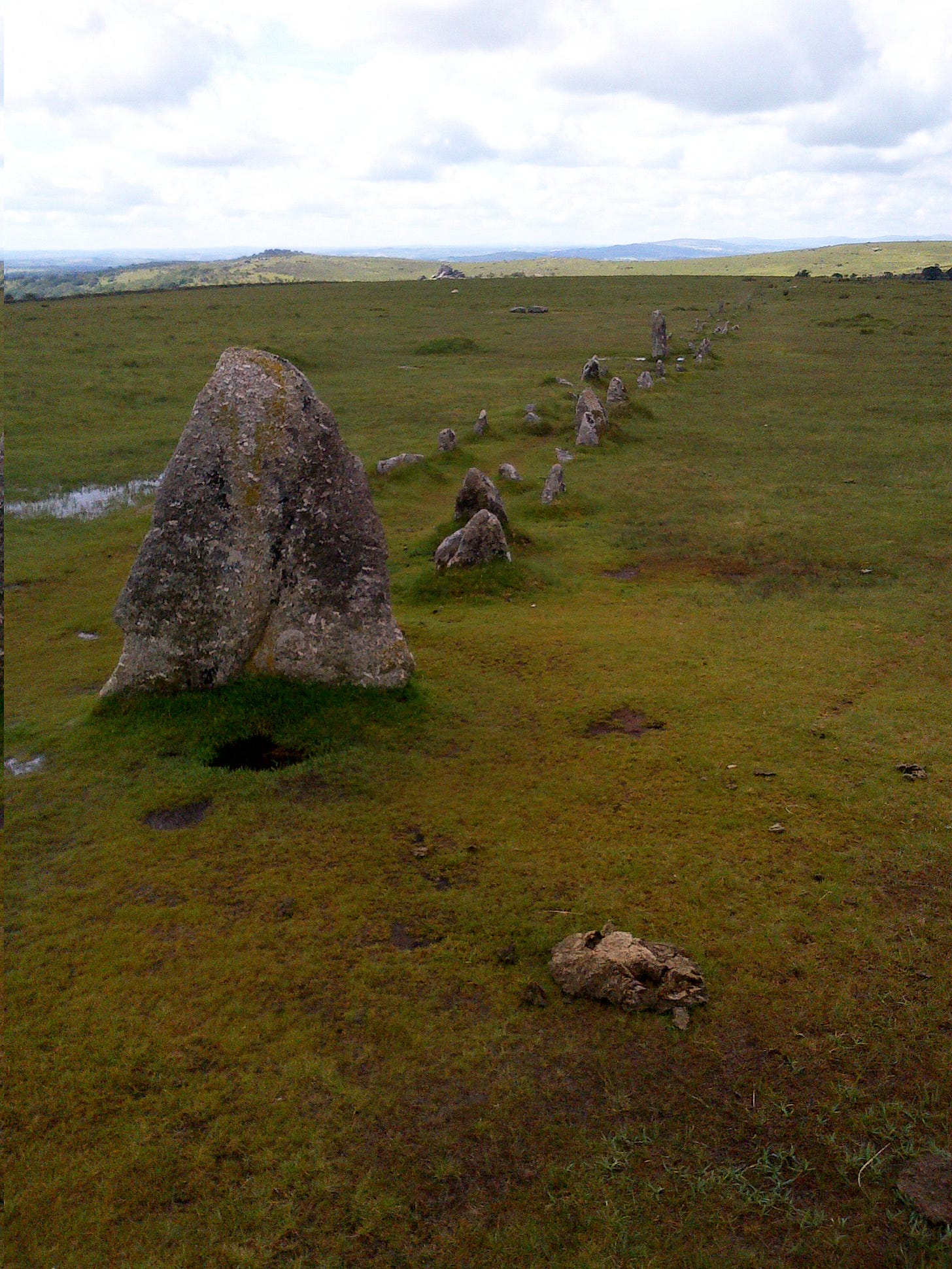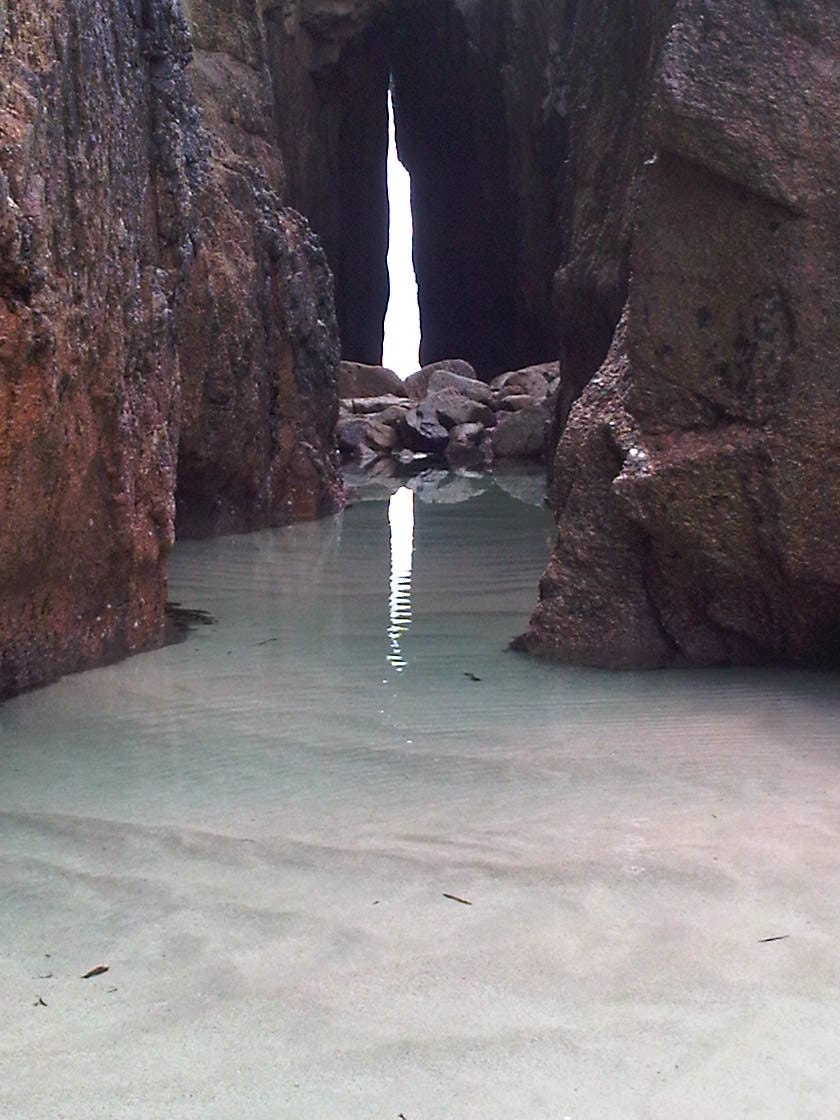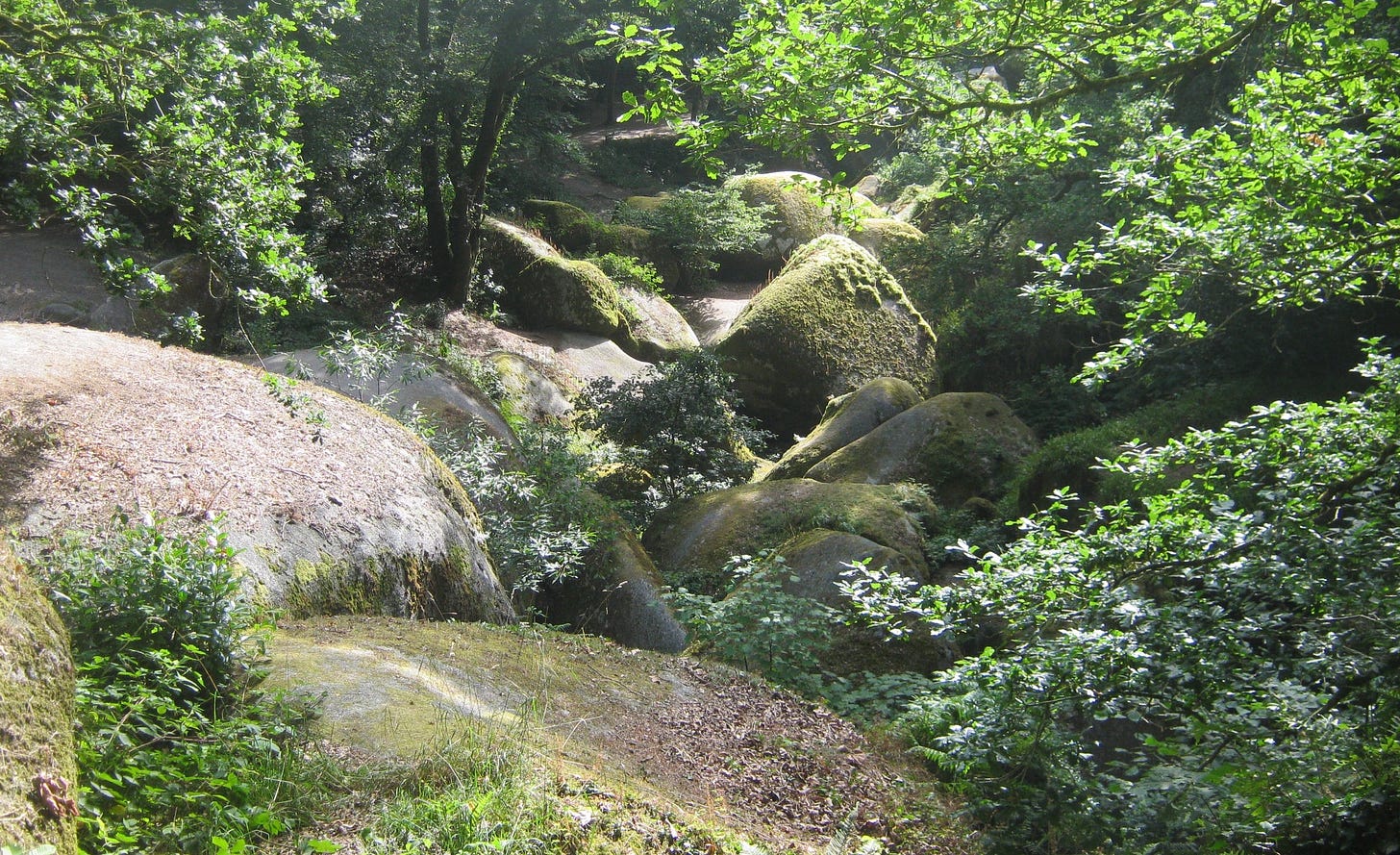This was going to be a post about our eco-project here, and how we are attempting to work with the earth, with permaculture, no-dig, veganic growing and how we’re planting up beginnings of our forest garden. But that will be for another time.
Right now, I’ve had a rare event: half an hour just sitting under our huge guardian oak, in the last of the low westering weak and gentle sun of a soft February day, on my own, quietly, after a few hours writing, then working with the land.
Birdsong.
The tumbling stream.
Nothing else. Such a recipe for restoration.
A time of no words.
We should do this every day.
And thinking about this time of day: how these cuspal moments, places, seasons allow one to enter sacred time, somehow, where the everyday is suspended; where time itself is suspended, though the actual transition between day and night, here and there is, in fact, brief.
Dusk. Dimpsy. My cousin reminds me that in Cornwall we call it dimmity. My sister, gloaming. Wolf-light. Twilight. Half-light. Crepuscule. Entre chien et loup: the time between dog and wolf. A magical time, in the true sense – as dawn is too.
A time for slipping between the worlds.
This is also a cuspal season: not quite winter, not quite spring. Its own time. Time to dream new beginnings into existence; time also to reflect on what is passing. Time to take moments to be still and feel the earth’s turning; and, here, a pause in a very busy time on the land as we plant new fruit trees, clear last year’s growth, dig out some of the thousands of brambles, make woodchip, feed and prepare the soil for sowing, log the rest of the fallen trunks and branches.
And there are places that offer this entry, this threshold, too: Dartmoor in Devon, where I lived and worked for almost all my adult life.
My native West Cornwall, a small triangle between Penzance, Land’s End and St Ives, where the only other cape in the UK exists (where two bodies of water meet – the other being Cape Wrath, in the north of Scotland): a land (also) rich with the megalithic monuments from our ancestors, and where I lead The Land’s Wild Magic writing retreat.
The Isle of Iona, Scotland, where I have been leading Islands of the Heart since 2000.
It’s no coincidence that I choose these thin-veil places for retreats where something of the sacred and timeless may enter our consciousness.
And then there’s Brittany, and the magical Forêt de Huelgoat, which I first met in the flesh – in the tree – after those huge and destructive storms of 1987, and to which I immediately gave my heart, and have returned to now.
These are places where one learns what it is to belong.
In the New Statesman the other day I was reading about whisky distilling(!) on the Isle of Islay in Scotland, and how much of the glamour of a whisky that we choose (or any other alcoholic drink*) is down to the place in our memory and imagination; but also the aged wooden barrel in which each batch, in turn, ages.
It occurred to me that place, like time, goes to work on us like that: our psyche becomes steeped in a particular place that has an impact on us, and we take on the flavour of that place in micro, and that timeless time in which we may have first met that place.
And now the sky has darkened, Venus has appeared, an owl is hooting from that oak just beyond my study window and – joy of joys – I believe that is a snipe drumming down by the stream.
* I have that resonance with Pineau des Charentes, a blend of cognac and freshly-pressed grape juice, which dates back to a romantic and adventurous winter I spent in France in my twenties, initially picking grapes in the vineyards attached to a chateau that produced cognac and pineau with my then-husband and our young daughter in a campervan. (There is a lot to say about that winter, after which I wrote a prizewinning short story, and later a novel, but not here.)
I wish you some out-of-time moments, dear friends.











I love that dusk time - often sit out on the balcony with an alco-free beer just post sunset, or go for a walk. It's a time when the air feels sort of solid.